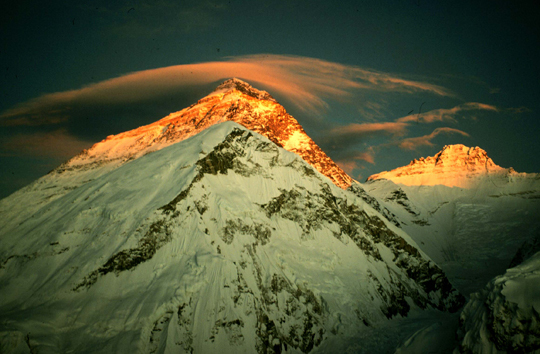
Up to nine Nepali army and police officers will be stationed in Base Camp on the south side of Everest this season, in response to the Lhotse Face conflict last spring. During an acclimatization trip up the South Col/Southeast Ridge route, Jon Griffith, Simone Moro and Ueli Steck clashed with a group of rope-fixing Sherpas on the South Col/Southeast Ridge route. The violent confrontation that followed in Camp II left many climbers feeling uneasy, despite the formal peace agreement signed by involved parties. [Read a thorough report of the conflict and its context here: “A Curse, a Fight and the Aftermath.”–Ed.]
This decision is an effort to mitigate and resolve conflicts without appealing to authorities in Kathmandu. “The police will be the state’s representative at the mountain to verify incidents that have to be reported to the authorities,” the trekking and expedition section officer of Nepal’s Ministry of Culture, Tourism and Civil Aviation, Dipendra Poudel, told CNN. “It’s [part of] our effort to make mountaineering respectable.”
Guillermo “Willie” Benegas, of Benegas Brothers Expeditions, doubts security presence will prevent conflict, which, he says, has always been inevitable. “It’s a community with a lot of people from a lot of different cultures all combined into one small island.” To make a long-term impact on those problems, which Benegas believes stems from unbalanced wages and unfair treatment of Sherpas, is to “go back to the basics…. One of the ways I think that we can alleviate the tension, the tone…is be part of the [Sherpa] culture. Treat them as your partners and not your employees.”
Police presence is one of several changes announced this year. The Nepali government will also require each person to pack out 17.6 pounds of trash, in addition to what that expedition group generates, or face penalties. Fee structures for foreign climbers will also change. Currently, each non-Nepali climber with an individual permit must pay $25,000, while groups of seven pay a cumulative $70,000. Starting in 2015, Madhusudan Burlakoti, head of Nepal’s Department of Mountains, told The Guardian that only single permits, each costing $11,000, will be issued.